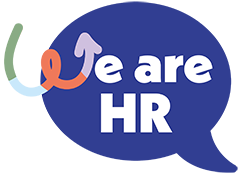Table Of Contents
In the whirlwind of a crisis, employees naturally turn to HR for guidance and support. But what about HR itself? HR teams often become the backbone of an organisation during difficult times, going above and beyond to support their colleagues. However, this dedication can come at a cost: burnout and neglecting their own well-being.
Just like the safety instructions on an aeroplane emphasise securing your own oxygen mask before assisting others, prioritising HR self-care is crucial. A well-rested and resilient HR team is better equipped to support the entire workforce. This blog delves into why HR well-being matters and explores practical strategies for HR professionals to nurture themselves even amidst demanding situations.
Why HR Needs to Check In
HR professionals have a unique vantage point within an organization. They’re privy to the anxieties and concerns coursing through the company. This constant exposure can easily lead to prioritising the needs of others over their own. During periods of crisis, the lines between personal and professional challenges become even more blurred.
HR is particularly vulnerable to burnout, disengagement, and decreased job satisfaction due to the ongoing pressure of managing large-scale changes. Studies reveal a concerning trend: only half of employees feel they can truly disconnect from work and recharge during challenging times. This translates to increased stress levels, difficulty taking breaks, and a potential for burnout.
Our own research on HR well-being paints a similar picture. A significant portion of HR professionals struggle to switch off from work, with even fewer reporting feeling a sense of resilience or manageable stress levels.
While employee well-being is paramount, neglecting HR’s own needs can have detrimental consequences for both individual mental health and the overall health of the organisation.
Cultivating HR Wellbeing: Strategies for Support and Success
While HR professionals might not have a designated support person, there’s a wealth of resources available to cultivate well-being and a sense of community, even during a crisis. Here are some key strategies:
1. Building an Internal Support Network
Every employee should have access to a dedicated manager who serves as a mentor and sounding board. This manager should be able to provide guidance, support vulnerability, and collaborate on solutions. HR teams can identify these individuals within the company leadership and actively build rapport. Remember, during a crisis, we’re all human first, and open communication is essential.
2. External Support Group
While a supportive manager is invaluable, they might not possess the specific expertise to address all HR-related challenges. Building an external support network of industry peers and thought leaders is crucial. Many online communities and forums already cater to HR professionals and address relevant topics. Reaching out to these groups can create a more intimate support system where individuals can share ideas and resources and hold each other accountable.
3. Championing Self-Care
HR teams likely spend a significant amount of time promoting employee well-being initiatives, encouraging time off, and advocating for a healthy work-life balance. However, it’s essential to “walk the talk” and prioritise self-care practices themselves. Leading by example sets a positive tone for the entire organisation and demonstrates realistic ways to manage stress and maintain well-being.
4. Implementing Daily Self-Care Rituals
Working remotely can blur the lines between work and personal life. Establishing three consistent daily rituals can build a foundation for self-care. These rituals could include:
- Engaging in physical activity: Exercise is a powerful stress reliever and mood booster.
- Prioritising mindfulness: Short meditation or breathing exercises can help manage stress and promote focus.
- Staying hydrated: Drinking plenty of water throughout the day improves energy levels and overall well-being.
- Scheduling breaks: Short breaks (10 -15 minutes) throughout the workday can prevent burnout and improve focus.
- Creating boundaries with technology: Establish “phone-down” rules during personal time to disconnect and recharge.
5. Setting healthy Boundaries
Understanding and respecting personal limitations is crucial. Employees may approach HR with personal and professional concerns, seeking solutions, or simply needing to vent. While empathy is important, HR professionals can’t shoulder all the burden alone.
Setting clear expectations at the outset of conversations is key. Understanding the nature of the support needed can help manage expectations. Does the employee simply require a listening ear? Do they need help brainstorming solutions? Or perhaps specific guidance?
HR professionals can utilise coaching techniques to empower employees.


